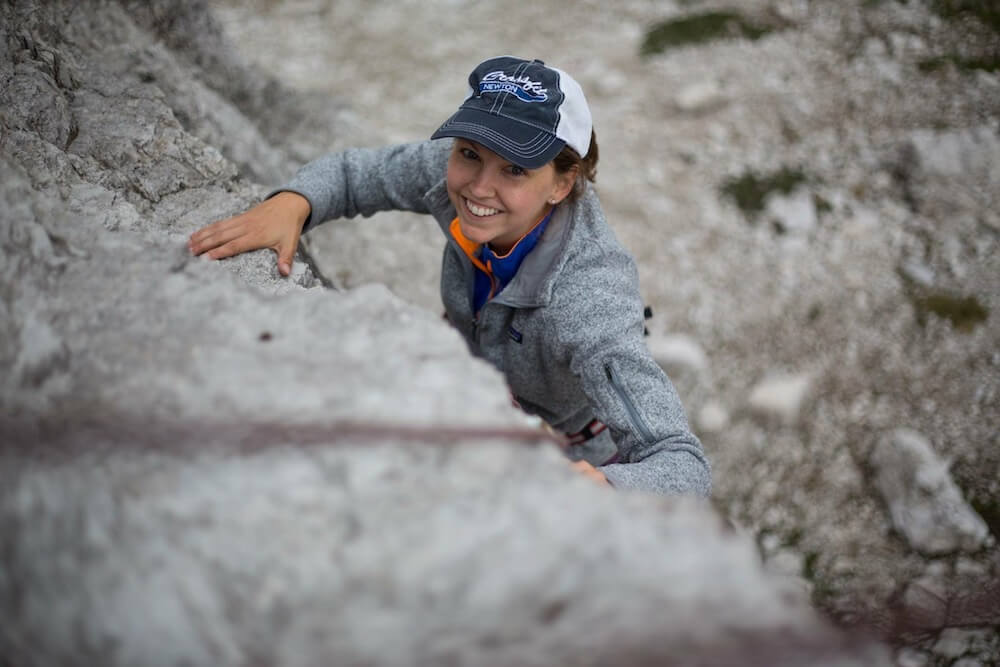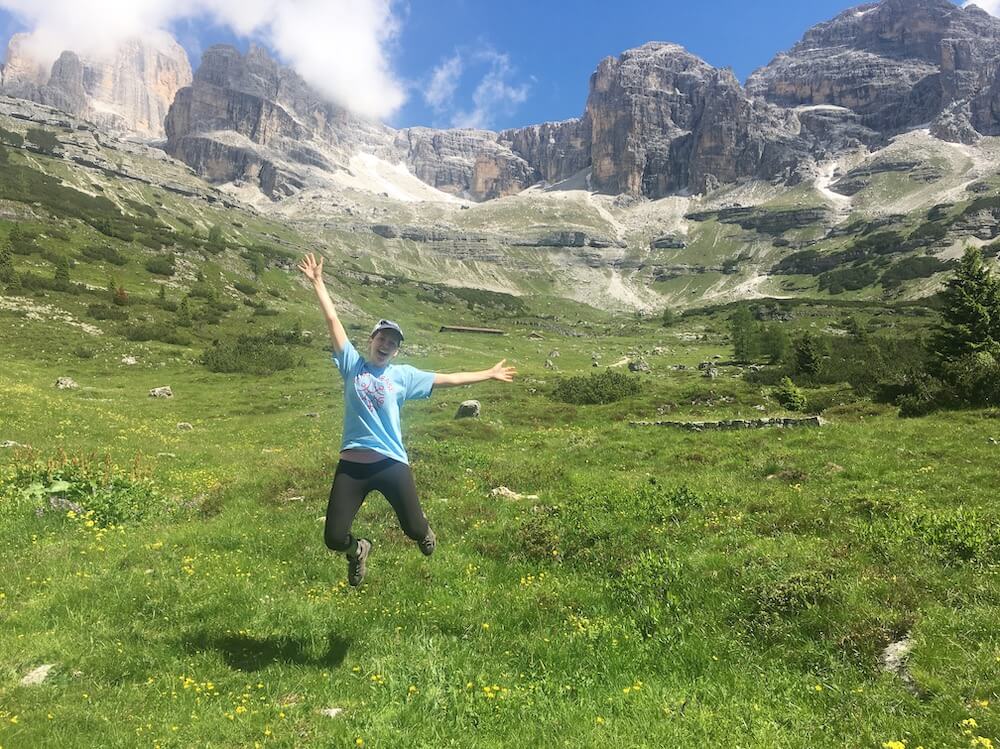My journey with cancer began in February 2015 at the age of 24. My primary care doctor felt a lump in my left breast and life suddenly shifted from working, sports, and dating to doctor appointments, wig shopping, and hospital visits.
It was a whirlwind of emotion and action. I underwent surgery, chemo, and radiation, and finally came out on the other side cancer-free.
Looking back, I remember feeling alone when I was first diagnosed. I didn’t have many people to turn to who understood what I was going through, besides older relatives who had cancer later in life. I wanted to connect with someone my age who could relate and understand, but I didn’t really know where or how to find someone like that — someone my age who just “got it.”
Finding community
Luckily, soon after I finished treatment, I found those people through First Descents. First Descents is an organization that provides free outdoor adventures for young adults impacted by cancer. During the summer of 2016, I joined 12 other young adult survivors for a week of whitewater kayaking. I was hooked. From days spent on the water, to conversations by the campfire, I discovered a new spirit and found myself longing for more.

Fast forward to 2018, and I was back with FD again: This time on a two-week adventure in Italy, where we lived in a castle, ate authentic Italian cuisine, and explored the Dolomite Mountains and Italian countryside. Around the same time, I also became involved with my local Boston FD Tributary where we biked on the cape, camped in New Hampshire, and rock climbed in Boston, all while laughing, venting, and reflecting about our cancer experiences. Some of these survivors became my best friends, and we’ve stayed close long after our FD trips have ended.
Unfortunately, my life in remission ended in August 2019. My yearly MRI showed that my cancer had returned in my lungs, which meant I was now considered to have stage IV metastatic breast cancer. I was devastated. I couldn’t bear the thought of going through it all again.
But one thing was different this time around: This time, I had my community. My friends and family showed up for me, standing by my side in this new uncertain future I faced. My First Descents community provided connection and understanding at a time when I desperately needed it. I’ve never felt more grateful to know other young adults with cancer than over these past few months.
Coming to Dana-Farber
When I relapsed this past August, my oncologist recommended that I look into switching my care to Dana-Farber because of their direct access to clinical trials and the expertise of their medical team. I was scared to leave the comfort of the hospital and doctors I had known for years, but was blown away by the friendliness and compassion I found at Dana-Farber. I knew I would be getting the best care, but I didn’t realize it would come with additional resources to expand my community.
My first appointment at DFCI included several visitors from a variety of their community resources, such as the Young and Strong Program (for young women with breast cancer), the Young Adult Program (for anyone with cancer ages 18-39) and their group for metastatic breast cancer patients called EMBRACE (Ending Metastatic Breast Cancer for Everyone). I appreciated that Dana-Farber understood the importance of not just the physical healing of their patients, but also of the spiritual, emotional, and mental healing. Amidst the uncertainty of my future, I could be certain that I’d have people to help me through it.

I wouldn’t have been able to overcome the mental toll that comes with being stage IV without these people, my rocks. This support system reminds me that I am more than just cancer, and they show up for me time after time.
Connecting during COVID-19
Now more than ever, I’ve been leaning into this community, even though we have had to rely on different avenues to connect. It’s been a little strange trying to keep up online, like in virtual Zoom hang outs with fellow FD alumni, or online support sessions provided by Dana-Farber, but each time I finish a virtual call I’m reminded how much it means to me to have others to connect with — from the rock walls to Facebook walls.
For many cancer survivors like myself, the COVID-19 pandemic has brought out a lot of familiar feelings. We know what it’s like to long for a life that used to be, to live in fear of an uncertain future, and to try to adjust to a new normal. After being diagnosed with cancer, life as we knew it suddenly changed, and there is no doubting the emotional, financial, and physical stress that this has caused. Right now, tapping into these resources and virtual offerings is my way of coping and staying connected. It makes me feel seen and heard, and empowers me to face challenges and keep my head up, especially when it gets lonely social distancing.
The silver lining is that through cancer we’ve also learned lessons that help guide us through these trying times. If I have learned anything from my experience with cancer it’s that there will always be brighter days ahead, whether we can see it now or not. So, I am leaning into that lesson now more than ever, and counting on my community to do it with me. We’re finding creative ways to connect, and gaining a greater appreciation for the communities we are a part of. I hope you all are too.
Julie Mizraji is a 29-year-old living with metastatic breast cancer in Waltham, MA. She works as the intramural sports coordinator at Brandeis University, and in her free time she likes to play soccer, bike, and do puzzles.
Mizraji wrote this article with Anna Kenyon, marketing coordinator at First Descents in Denver, Colorado.
